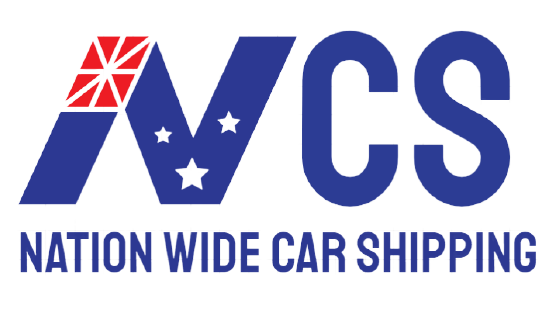A Comprehensive Analysis of Louisiana Car Shipping Guide
Understanding Louisiana Car Shipping
Louisiana, a state rich in culture and history, also presents unique challenges and opportunities for car shipping. The state’s diverse geography, including coastal regions, bayous, and rural areas, necessitates specialized handling for vehicles. This analysis will delve into the intricacies of Louisiana car shipping, covering key terms, common questions, and the advantages and disadvantages of different shipping methods.
Key Terms and Concepts
- Louisiana car shipping: The transportation of vehicles to or from Louisiana.
- Louisiana auto transport: A specific type of car shipping service focused on transporting automobiles.
- Car shipping to Louisiana: The process of transporting a vehicle to a location within Louisiana.
- Car transport from Louisiana: The process of transporting a vehicle out of Louisiana.
- Auto transport in Louisiana: The general term for vehicle transportation services within the state.
- Vehicle shipping Louisiana: A broader term encompassing the transportation of various types of vehicles in Louisiana.
Frequently Asked Questions
-
What are the different methods of car shipping to Louisiana?
- Open transport: The most common and cost-effective method, involving vehicles being exposed to the elements.
- Enclosed transport: A more secure and climate-controlled option, suitable for high-value or luxury vehicles.
- Door-to-door service: A convenient option where the carrier picks up and delivers the vehicle directly to the customer’s location.
- Terminal-to-terminal service: A more affordable option where the customer is responsible for transporting the vehicle to and from the shipping terminal.
-
How long does it typically take to ship a car to or from Louisiana?
- The transit time depends on various factors, including the distance, shipping method, and any unforeseen delays. However, a typical estimate is 7-10 days for open transport and 10-14 days for enclosed transport.
-
What documents are required for car shipping to Louisiana?
- Generally, customers will need to provide the vehicle’s title, registration, and insurance information. Additional documentation may be required for international shipping or vehicles with special modifications.
-
What factors affect the cost of car shipping to Louisiana?
- The cost of car shipping is influenced by several factors, including:
- Distance to be traveled
- Shipping method (open or enclosed)
- Size and weight of the vehicle
- Time of year (peak seasons can be more expensive)
- Insurance coverage
- The cost of car shipping is influenced by several factors, including:
Nationwide Car Shipping LLC: A Case Study
Nationwide Car Shipping LLC is a prominent player in the car shipping industry, offering services to and from Louisiana. To provide a comprehensive analysis, let’s examine their frequently asked questions and evaluate the pros and cons of their services.
Frequently Asked Questions
- What is the average cost of shipping a car to Louisiana with Nationwide Car Shipping LLC?
- The cost varies depending on the factors mentioned earlier. However, Nationwide Car Shipping LLC provides online quotes to give customers an estimate.
- Does Nationwide Car Shipping LLC offer insurance for the vehicle during transport?
- Yes, they offer insurance options to protect the vehicle during transit.
- Can Nationwide Car Shipping LLC handle vehicles with modifications or special equipment?
- Yes, they can accommodate vehicles with modifications, but additional charges may apply.
Pros and Cons
Pros
- Experience and reputation: Nationwide Car Shipping LLC has a track record of providing reliable car shipping services.
- Variety of services: They offer different shipping methods and additional services like insurance and vehicle tracking.
- Online quoting: Customers can easily obtain quotes through their website.
- Customer support: They provide responsive customer support to address any concerns or questions.
Cons
- Cost: Their rates may be higher compared to some competitors, especially for enclosed transport or during peak seasons.
- Transit time: While they strive to meet estimated delivery times, unforeseen circumstances can cause delays.
Louisiana Logistics: A Vital Hub for Transportation
Louisiana’s strategic location along the Gulf Coast has made it a vital hub for logistics and transportation in the United States. The state’s extensive network of highways, railways, waterways, and airports provides efficient connectivity to major markets both domestically and internationally.
Key Transportation Infrastructure
- Interstate Highways: Louisiana is crisscrossed by several major interstate highways, including I-10, I-20, I-49, and I-55. These highways provide vital links to other parts of the country, facilitating the movement of goods and people.
- Railways: The state is served by major railroads such as Union Pacific and CSX, offering rail transportation services for bulk commodities and intermodal containers.
- Waterways: Louisiana’s extensive coastline and navigable rivers, including the Mississippi River, provide a vital waterway network for transporting goods, especially bulk commodities like oil, gas, and agricultural products.
- Airports: The state has several major airports, including Louis Armstrong International Airport in New Orleans and Baton Rouge Metropolitan Airport, which serve as important hubs for both passenger and cargo flights.
Logistics Industry in Louisiana
The logistics industry plays a crucial role in Louisiana’s economy, supporting various sectors such as manufacturing, agriculture, energy, and retail. The state’s strategic location, coupled with its well-developed infrastructure, has attracted numerous logistics companies and distribution centers.
- Port of New Orleans: One of the most significant ports in the United States, the Port of New Orleans handles a wide range of cargo, including petroleum products, agricultural commodities, and manufactured goods.
- Intermodal Facilities: Louisiana has several intermodal facilities that facilitate the transfer of cargo between different modes of transportation, such as rail and truck. These facilities enhance the efficiency and cost-effectiveness of logistics operations.
- Cold Chain Logistics: Given its agricultural production, Louisiana is a key player in cold chain logistics, ensuring the safe transportation and storage of perishable goods.
Challenges and Opportunities
While Louisiana’s logistics industry is thriving, it faces certain challenges, including:
- Natural Disasters: The state is prone to hurricanes and flooding, which can disrupt transportation infrastructure and logistics operations.
- Infrastructure Maintenance: Maintaining the state’s transportation infrastructure requires significant investment to ensure its efficiency and reliability.
Despite these challenges, Louisiana’s logistics industry presents numerous opportunities for growth and development. The state’s strategic location, coupled with ongoing investments in infrastructure and technology, positions it well to capitalize on the growing global trade and logistics market.
In conclusion, Louisiana’s logistics industry is a vital component of its economy, supported by a well-developed infrastructure and strategic location. The state’s ability to efficiently handle the movement of goods and people has attracted numerous businesses and contributed to its economic growth. As Louisiana continues to invest in its transportation network and address challenges such as natural disasters, it is poised to remain a key player in the global logistics landscape.
Louisiana car shipping presents unique challenges and opportunities due to the state’s diverse geography and transportation infrastructure. By understanding the key terms, frequently asked questions, and evaluating companies like Nationwide Car Shipping LLC, individuals and businesses can make informed decisions when shipping vehicles to or from Louisiana.

